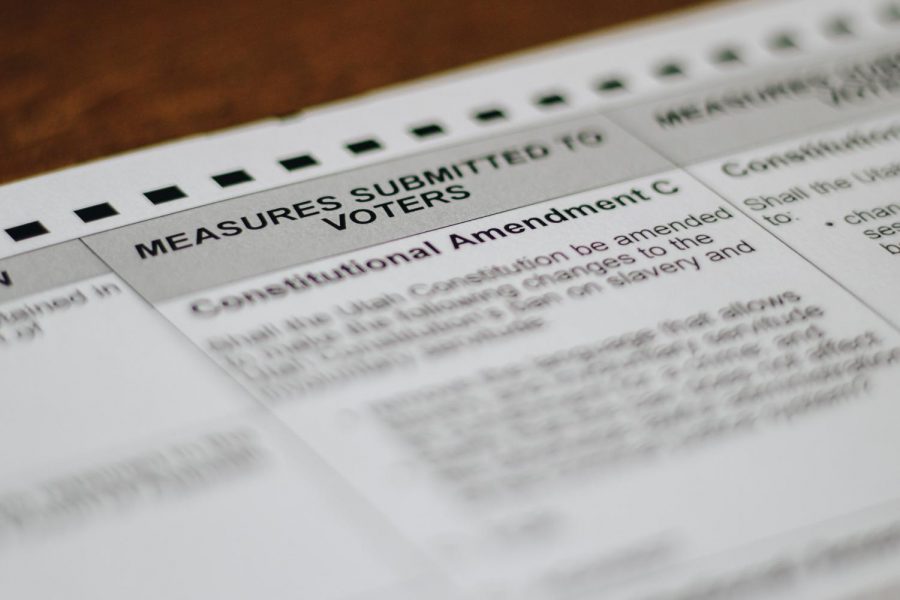Soter: Vote Yes on Amendments A & C
October 27, 2020
I’ve never voted before. If it were as simple as Joe vs. Donald, I wouldn’t be writing this op-ed. The list of people and policies on the ballot is daunting: state and local offices, judges, ballot initiatives, constitutional amendments, oh my! And while I wish I had the time and space to go in-depth on each part of our ballot, I don’t. So, instead, I’m going to focus on two of the seven constitutional amendments proposed this year and why they matter.
Both are centered around language: making the state constitution gender-neutral and removing language around slavery. For some, these changes might seem insignificant, but I’d argue that this language really matters. The Utah constitution is the foundation of our state’s laws, and we should treat it as such. Not to mention that constitutions are living documents, subject to change. The constitution should reflect our state’s progress rather than condemned to live in its historical shadow.
The resolution to make the constitution gender-neutral, Amendment A, is sponsored by State Senator Diedre Henderson (who is very likely to become Lieutenant Governor as she is Spencer Cox’s running mate.) If Cox and Henderson win, she’ll be only the second female Lt. Governor in Utah history. So it’s about time our constitution acknowledges the rights of all people in Utah, regardless of gender.
Only six of the Utah Constitution’s 45 pages need corrections to use gender-neutral language. Male pronouns will be eliminated and the word “men” will be replaced with words like “persons” or “citizens,” leaving little room to discriminate based on gender. The resolution seems like a given considering Utah’s history with gender equality. After all, Utah was the first state to grant women suffrage, and home to the first woman state senator.
Utah ranked worst in the nation for women’s equality last year. Even so, Utah women remember their history and continue to fight for their political voices to be heard. Take the last three years of women’s marches up to the Utah State Capitol, for example. The constitution should honor the state’s progressive history and women’s tenacious battle — not to mention their rights as human beings — proving last year’s ranking wrong. Who loses? Who would be worse off for the change to inclusive language? Exactly; nobody. We should all vote YES on Amendment A.
Utah’s constitution allows for slavery and indentured servitude if it is “a punishment for a crime.” Utah is one of only 12 states that makes that twisted exception. While the intent may not have been racist, the reality of that allowance is. But Amendment C on the ballot will take this offensive language out of our constitution. The resolution is sponsored by Representative Sandra Hollins, the state’s first Black woman representative; and follows in the footsteps of Colorado, who took the same clause out of their constitution in 2018.
Passing this constitutional amendment would be symbolic of Utah’s solidarity with the Black Lives Matter movement and an important step in the right direction. By ratifying this amendment and omitting offensive, racist language from our state’s cornerstone document, we will achieve some measure of the progress that was called for in protests this summer and change our community for the better. We should all vote YES on Amendment C.
Language matters. I don’t want to be treated as lesser than because of my gender, and I don’t want any of my peers to be treated as lesser than because of their race. Utah’s constitution must be revised to reflect who we are today, not who we were in 1895.








